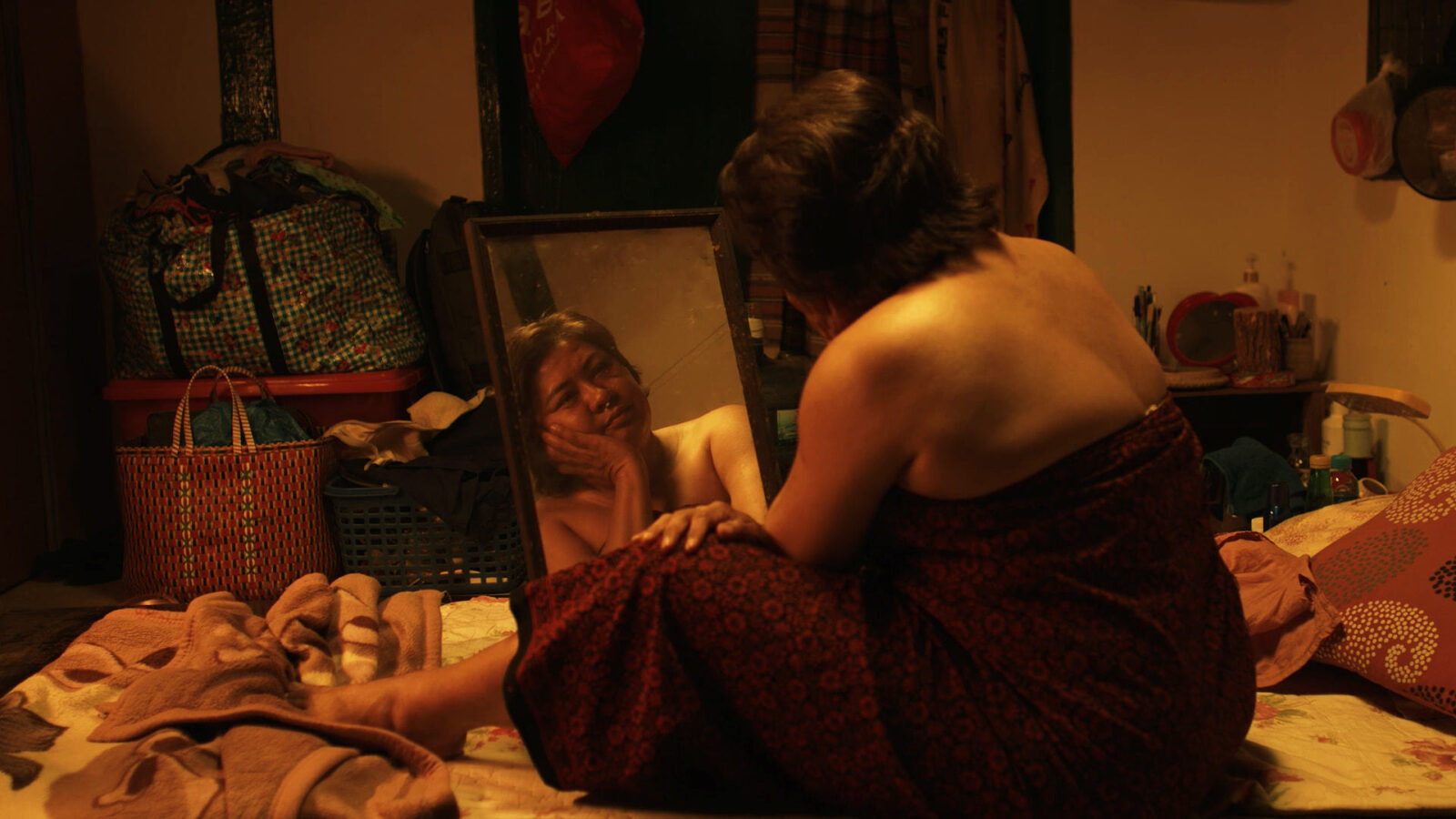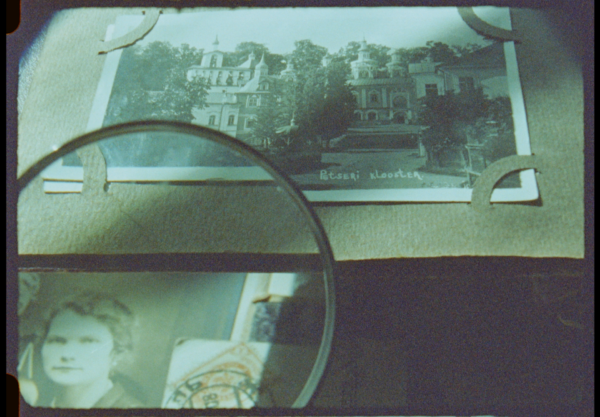Women Of A Certain Age
Late Blooming In A Lonely Summer Day
A character study of a middle aged woman, in many ways reminiscent of Yasujirō Ozu’s cinematic work.

As many would attest, the past two years have been particularly tumultuous for humanity; alongside the innumerable tragic losses faced, there’s been a complete restructuring of how we live, underscored by a frightening sense of instability. In many ways, the pandemic has simply accelerated the global path on which capitalism has already been set with mass layoffs within the gig economy and a decimation of social spaces.
Sein Lyan Tun’s Late Blooming in A Lonely Summer Day is a character study of a middle-aged woman, Ma, who is forced to cope with these issues. Taking place in September 2020 during Myanmar’s second wave of COVID, the film side-steps obvious references to the country’s political instability to locate a precarity within its protagonist’s personal life. It becomes clear that the feelings many would associate with the pandemic—an unbearable listlessness, loneliness, and perhaps shame—are simply the everyday realities of women of a certain age.
Tun adopts a patient visual style, with his film being predominantly composed of still frames and subtle pans—mining large inspiration from the slow cinema movement, with his focus on the quotidian, with long drawn-out scenes focused on routine and domesticity. Scenes feature very little dialogue and are presented without embellishment; the world of the film is seemingly sculpted by facts, as evinced by the opening scene, which features the sounds of a news report regarding new COVID restrictions. Yet the film’s directness serves to highlight the small tragedies of the pandemic.
One scene in particular sticks out in this regard, as we see Ma being laid off by her boss in the restaurant she works in. He delivers the news in an extraordinarily impersonal manner, his face not even in the frame, and despite her protestations, he acts as if the current situation is self-evident. To the audience, this also comes as no surprise as news of restaurants struggling during the pandemic seems commonplace, yet it’s still painful to witness the loss of a woman’s livelihood. Perhaps there’s always a certain bitterness in seeing the harshness of our immediate reality reflected back onto us.
A key focus of the film is on Ma’s loneliness and her infatuation with a much younger coworker. We are effectively submerged in her perspective, which Tun uses to subvert the male gaze. In an ironic manner, the qualities that make her coworker attractive are ones men would stereotypically see in women. He is first introduced in a prolonged scene within a kitchen, cooking in real time as if he is the domestic goddess Jeanne Dielman, all while Ma steals quick glances from him. In a later scene, the camera floats around curiously before focusing on the coworker filming a sexy striptease in front of his phone for TikTok (a particularly amusing pandemic-era timestamp), with a small glimpse of pubic hair being presented with normalcy, as if it’s a common erotic tease. The focus of the camera itself reflects Ma’s repressed desires, as we are also treated to close-ups of younger men’s crotches and toned muscles, all while we see Ma furtively avert her head in shame. It is these small details that flesh out the world of Tun’s film as the camera lingers on cracked phone screens and a can of deodorant, which slowly gets passed on from the coworker to Ma in what appears to be a seductive act.
In Ma we see the struggles of a middle-aged single woman, being full of personal and, prominently, sexual desires, yet unable to act on them out of an unspoken societal shame. In a pivotal moment, her coworker finally approaches her, and while Ma holds certain romanticised notions of him, he only sees her interest as an opportunity for financial gain, requesting a loan to buy a new phone that’s better at Tik Tok, chalking it up to her lack of spending as a single woman. Their entire relationship becomes reduced to a transaction between two people whose individual lives lack stability, somberly reflecting the dehumanising nature of capital.
The film’s title is especially reminiscent of Yasujirō Ozu’s cinematic work, bringing to mind such seasonal classics like Late Spring (1949) and Early Summer (1951). Tun not only borrows Ozu’s proclivity for stories of older women in times beset by unstoppable change but also his visual tricks. The scenes set in Ma’s room are positioned from Ozu’s favoured ground level camera angle, bringing out a certain intimacy as we see her prepare for her “date”. Within these scenes, Tun explores the small pleasures in Ma’s life, with the removal of a bra being portrayed as an immense relief. Yet her personal space, too, becomes enraptured by her desires as, in an almost performative sense, we see long, methodical scenes of Ma dolling herself up, slowly grinding a paste to rub onto her skin and carefully applying lipstick as if to smooth out the imperfections belied by middle age.
With the film’s (at times laborious) pace, one also thinks of Ozu, in the massive restraint he exercises before a break in formality and structure at the end, which reveals a moment of transcendence. In a similar manner, Late Blooming In A Lonely Summer Day builds up to a break in form as the lights cut out in Ma’s apartment, and in pure darkness, you hear sounds of immense pleasure coming from her. The film’s title as such is a literal description of Ma’s sexual awakening in the film, which is undercut by the film’s final shot, as the lights come back on and we see her sprawled out in shame.
The film effectively ends with the depressing notion that a middle-aged woman can only find true liberation in the dark, where her actions cannot be seen or judged. Ma’s relief is only temporary, and none of the tension is fully resolved, only leaving the viewer with an ugly feeling, sharing Ma’s guilt and shame and a potential recognition of our complicity in how society treats the middle-aged. Perhaps this is a fitting ending for our current times in which any sense of a collective resolution to our problems still feels far-flung.





There are no comments yet, be the first!